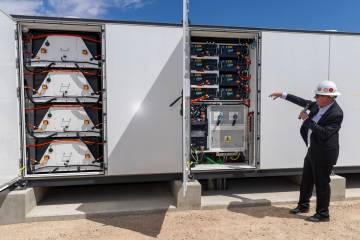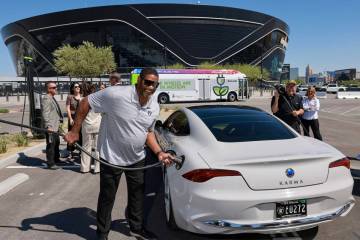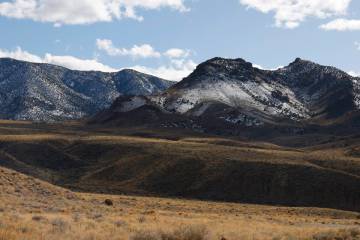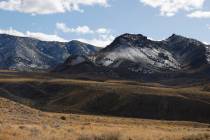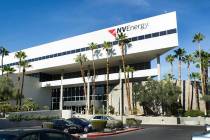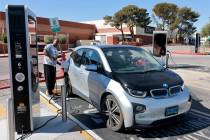Nevada clean energy thrives
Nevada's clean-energy economy grew even faster than other sectors between 1998 and 2007, according to a study by The Pew Charitable Trusts.
During that period, Nevada's clean-energy industries increased employment by 28.8 percent to 3,641 jobs, compared to 26.5 percent for all jobs in the state. The clean-energy sector showed 9.1 percent job growth nationally, which was faster than the overall 3.7 percent job growth, according to a recent 59-page report on the clean-energy economy.
"That 28 percent growth rate is not insignificant. I think the sky is the limit," said Dan Geary, Nevada spokesman for the Pew Environmental Group. "The West is going to continue to grow and to need more and more power."
Nevada benefits from some of the nation's best solar energy and geothermal energy, he said. Geothermal energy comes from hot underground water and steam.
"It's good news for Nevada that kind of job growth has occurred without any kind of substantial public policy," said Charles Benjamin, director of the Nevada office of Western Resource Advocates, a conservation group.
Nevada requires NV Energy to obtain increasing amounts of their power from renewable resources, such as solar and wind power, and provides tax incentives to build utility-scale solar power plants.
However, "a lot of these more aggressive incentives occurred this legislative session, and this study doesn't cover the effect of that," Benjamin said.
The clean-energy economy, as defined by the Pew report, consists of clean energy, such as renewable power; energy efficiency; environmentally friendly production; conservation and pollution mitigation; and training and support.
The first category includes projects such as Boulder City's Nevada Solar One, a 64-megawatt, solar thermal power plant that provides power to NV Energy; a 14-megawatt array of solar panels at Nellis Air Force Base; Sempra Generation's planned 48-megawatt addition to 10 megawatts of solar panels at Boulder City; and numerous geothermal power plants in Northern Nevada.
The clean-energy economy also encompasses Power Efficiency Corp., which employs about 20 workers in Las Vegas in manufacturing systems for improving the efficiency of electric motors for elevators, rock crushing and construction conveyor belts.
However, the clean-energy sector remains relatively small nationally, particularly in Nevada.
Clean-energy jobs represent 0.28 percent of the 1.28 million jobs in Nevada, the smallest percentage of any state except Mississippi. Nationally, the sector accounts for 0.49 percent of jobs.
"It remains to be seen" whether clean energy can become a significant economic driver in Nevada, Benjamin said.
Keith Schwer, director of the Center of Business and Economic Research at the University of Nevada, Las Vegas, said he had not had an opportunity to review the report but agreed with Benjamin.
"Can we build an economy to take advantage of the apparent advantages that we have?" Schwer asked. "That's a great question for us, and we don't know (the answer)."
Like the first transcontinental railroad and the first manned flight to the moon, the development of Nevada's clean-energy economy looks inevitable but needs a government boost, Geary said. "All of these things require comprehensive federal goals and policies," he said.
Benjamin said, "There's virtually an unlimited amount of work that can be done to our homes and offices to have more efficiency."
In addition, Nevada may benefit from the growing demand for renewable power in California, Benjamin said, because it is easier to obtain permits for renewable energy plants in Nevada.
Contact reporter John G. Edwards at jedwards@reviewjournal.com or 702-383-0420.




